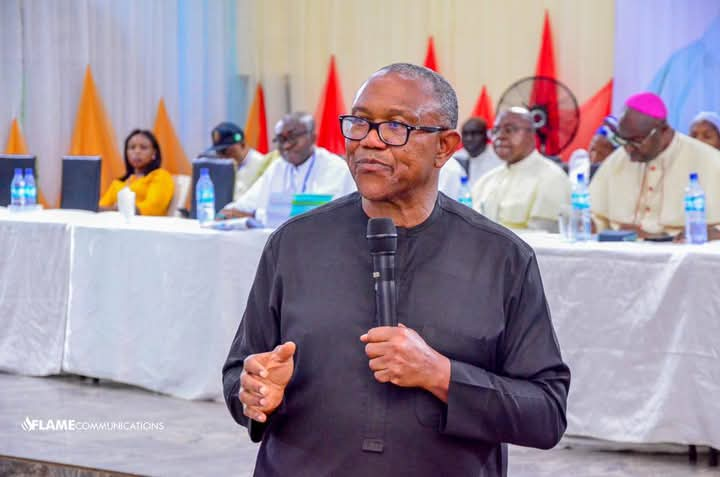Presidential candidate of the Labour Party, Peter Obi, has challenged the Church to deepen its engagement in youth empowerment and community development, warning that Nigeria’s regeneration depends on practical value-building rather than preaching alone.
Addressing the Fourth Enugu Diocesan Synod, Obi said religious institutions must “move from pulpit to people” by confronting the realities of moral decline, unemployment and a growing population of unskilled youths.
He recounted a recent visit to a burnt school where children studied in poor conditions, describing it as evidence of a societal collapse in discipline and civic responsibility.
Obi praised the Enugu Catholic Diocese for investments in agriculture and skills development, citing his tour of the diocesan farm with Auxiliary Bishop Ernest Obodo. Such initiatives, he said, create job opportunities, strengthen food security and promote sustainable community growth.
He contrasted this with Nigeria’s continued underuse of its vast arable land despite abundant natural resources.
While insisting that religious bodies should not interfere with governance, Obi urged them to lead the push toward hard work, productivity and responsible citizenship. Referring to insights from Professor James Robinson, co-author of Why Nations Fail, he argued that nations stagnate not for lack of knowledge but for failing to act on what is required for progress, a challenge he said Nigeria must urgently confront.
Obi also pointed to successful Church–State partnerships in healthcare and education, noting that institutions such as Iyienu and Borromeo hospitals became teaching and referral centres through proper support. Similar collaboration, he added, helped boost standards in education where religious organisations remained involved.
Earlier, the Bishop of the Diocese thanked Obi for attending the synod and acknowledged his “consistent support” for social welfare, praying that he would have greater opportunity to serve the nation.
Obi concluded by urging the Church to scale up programmes that instil values, provide mentorship and enhance youth productivity, saying Nigeria urgently needs institutions committed to rebuilding character and securing shared progress.

 NEWS2 years ago
NEWS2 years ago
 MUSIC4 years ago
MUSIC4 years ago
 MUSIC4 years ago
MUSIC4 years ago
 MUSIC2 years ago
MUSIC2 years ago














